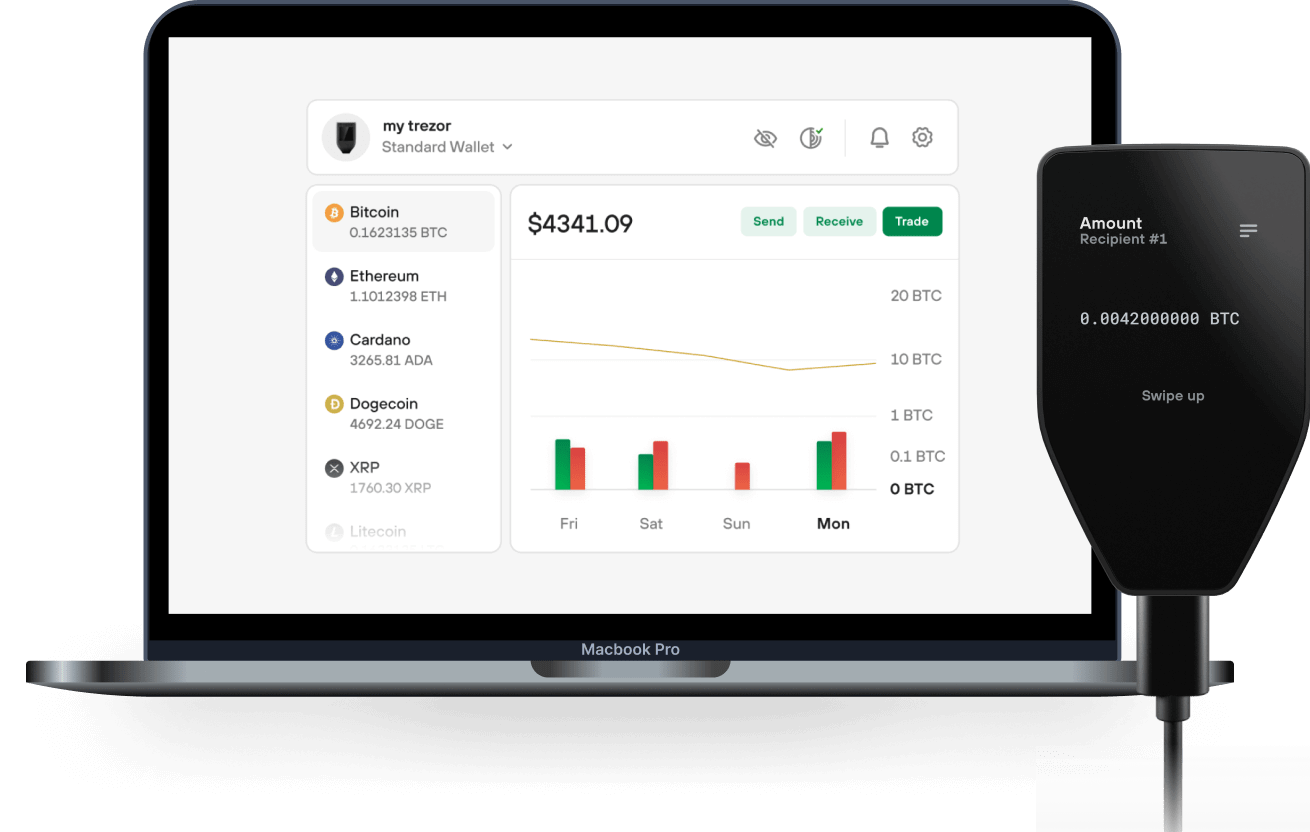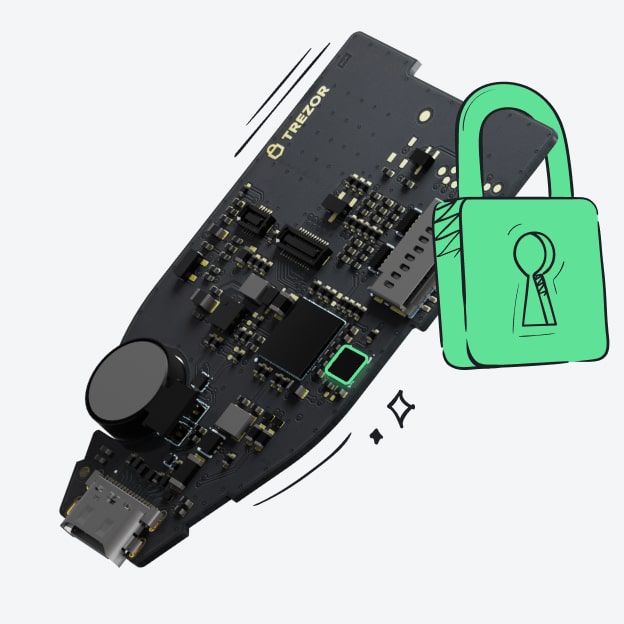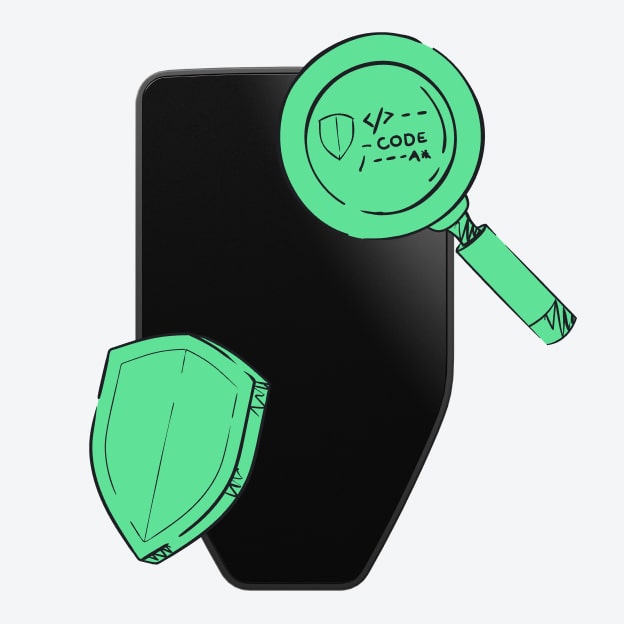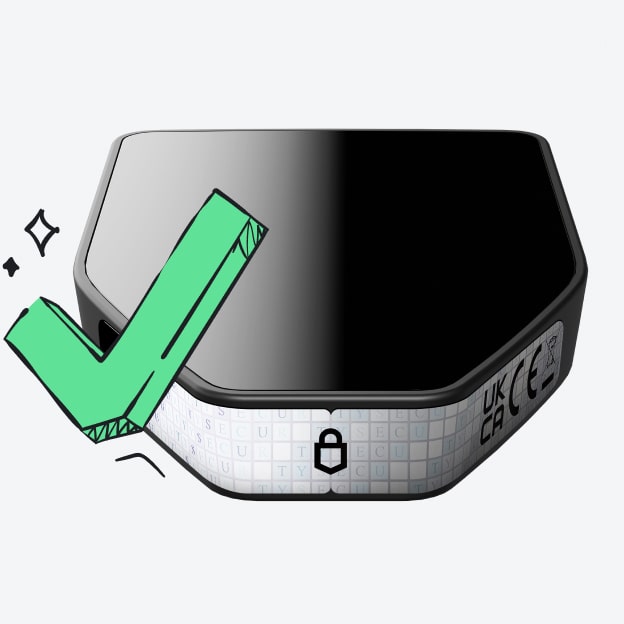Safe & secure Ethereum Classic wallet
Take control of your Ethereum Classic assets with complete confidence in the Trezor ecosystem.
- Secured by your hardware wallet
- Use with compatible hot wallets
- Trusted by over 2 million customers

Buy, sell & manage your Ethereum Classic with the Trezor Suite app

Send & receive

Buy, sell & swap
Trezor hardware wallets that support Ethereum Classic
Sync your Trezor with wallet apps
Manage your Ethereum Classic with your Trezor hardware wallet synced with several wallet apps.
Trezor Suite
MetaMask
Rabby
Supported Ethereum Classic Network
- Ethereum Classic
Why a hardware wallet?
Go offline with Trezor
- You own 100% of your coins
- Your wallet is 100% safe offline
- Your data is 100% anonymous
- Your coins aren’t tied to any company
Online exchanges
- If an exchange fails, you lose your coins
- Exchanges are targets for hackers
- Your personal data may be exposed
- You don’t truly own your coins
How to ETC on Trezor
Connect your Trezor
Install Trezor Suite

Transfer your ETC

Make the most of your ETC
Trezor keeps your ETC secure
 Protected by Secure Element
Protected by Secure ElementThe best defense against both online and offline threats
 Your tokens, your control
Your tokens, your controlAbsolute control of every transaction with on-device confirmation
 Security starts with open-source
Security starts with open-sourceTransparent wallet design makes your Trezor better and safer
 Clear & simple wallet backup
Clear & simple wallet backupRecover access to your digital assets with a new backup standard
 Confidence from day one
Confidence from day onePackaging & device security seals protect your Trezor’s integrity
Communities
Frequently asked questions
How do I buy Ethereum Classic?
Trezor users can buy ETC securely via the “Buy & sell” tab in the Trezor Suite app. Enter the amount (fiat currency) you want to spend on ETC, select a compatible exchange provided by Invity.io, and then follow the necessary steps to complete the purchase.
What is the difference between Ethereum Classic (ETC) and Ethereum (ETH)?
These cryptocurrencies were once the same project, but the communities split in 2016. In 2022 Ethereum switched from proof of work to proof of stake, where Classic remained on proof of work. This change in consensus mechanism signified the first major difference between the two chains. Apart from this divergence, ETC and ETH are still technologically very similar, and contracts deployed to Ethereum can also be deployed to Ethereum Classic.
How do I mine Ethereum Classic?
As with other cryptocurrencies, mining ETC requires specialist hardware and software. Owing to Ethereum Classic’s large hashrate, solo miners may turn to mining pools to receive smaller, regular rewards proportional to their contribution. You can learn more about mining Ethereum Classic in the project documentation.
Which wallet supports Ethereum Classic?
When it comes to securely storing your Ethereum Classic (ETC), Trezor is an excellent choice. As an Ethereum Classic wallet, Trezor ensures your asset access remain offline, providing top-notch security against hacks and unauthorized access. Its user-friendly interface makes it suitable for both beginners and experienced users, allowing for seamless management of your ETC.
With your Trezor wallet backup, your ETC remains safe and accessible, even if your device is lost, stolen, or damaged. For anyone seeking a reliable wallet for Ethereum Classic, Trezor stands out as the premier choice.